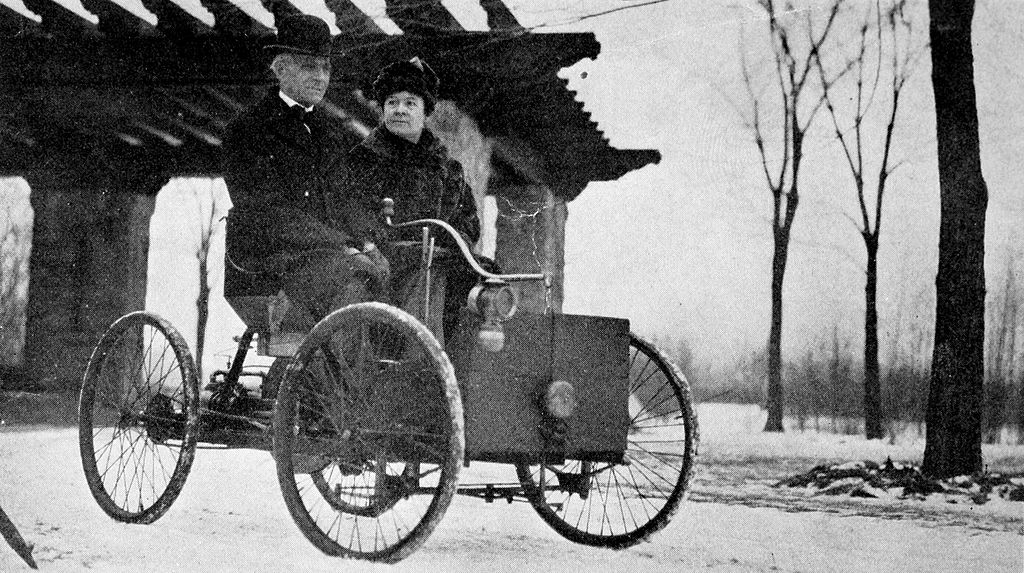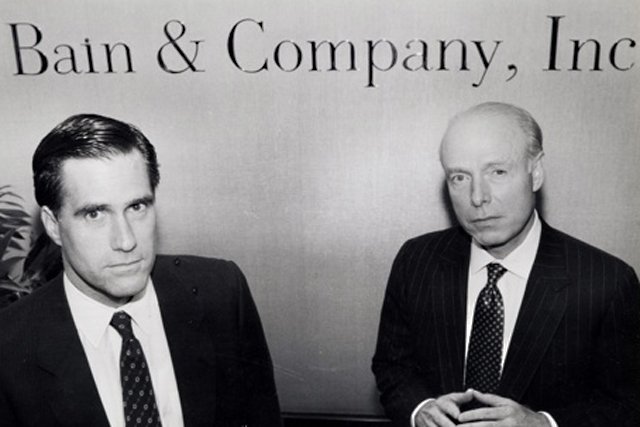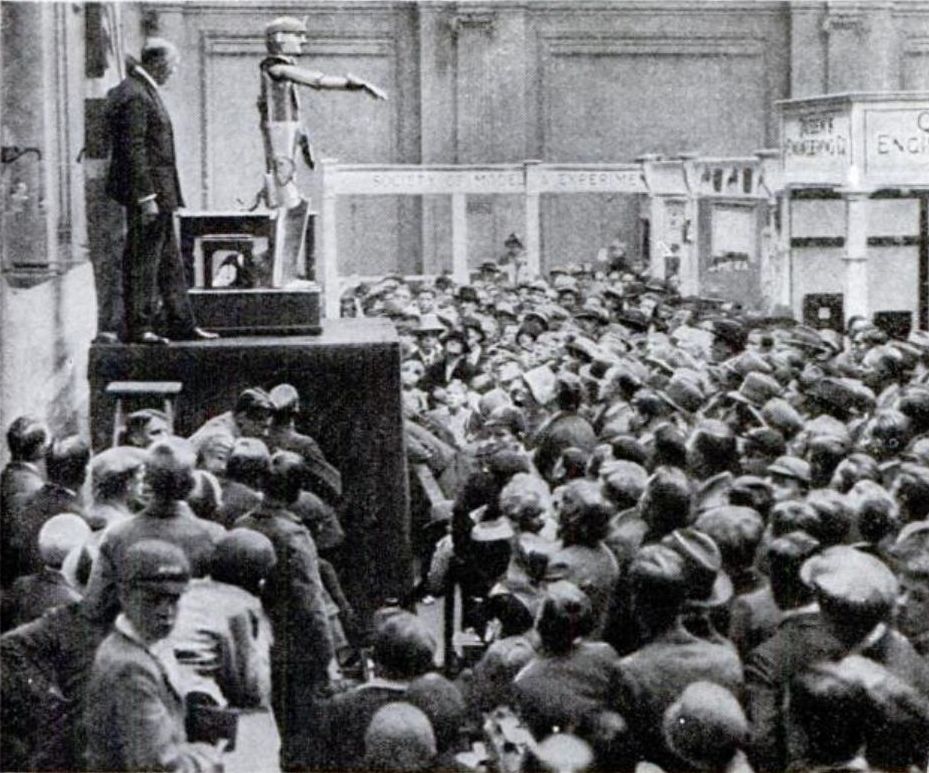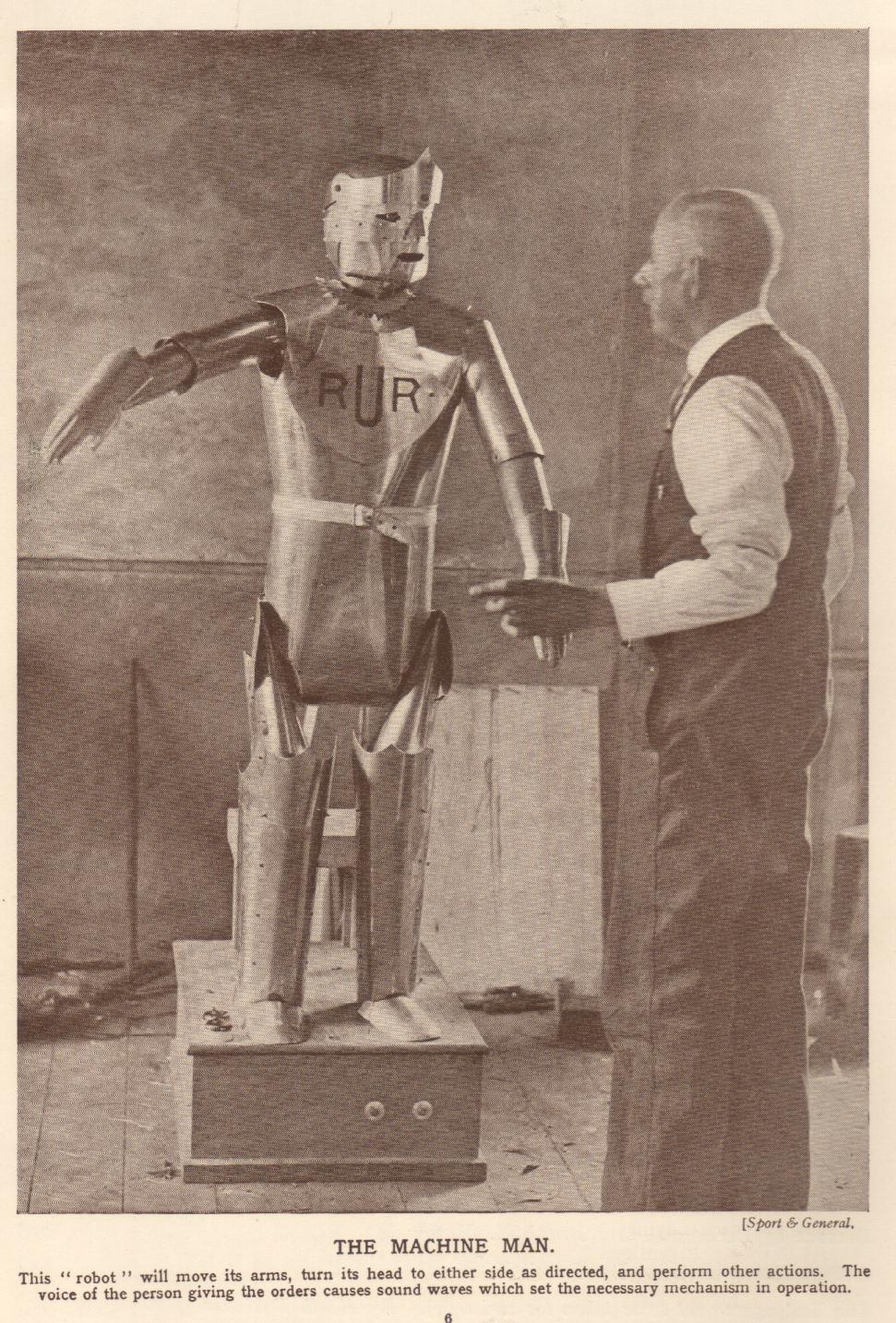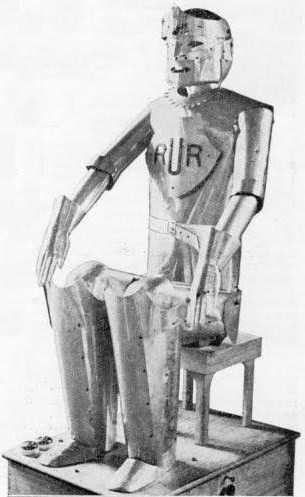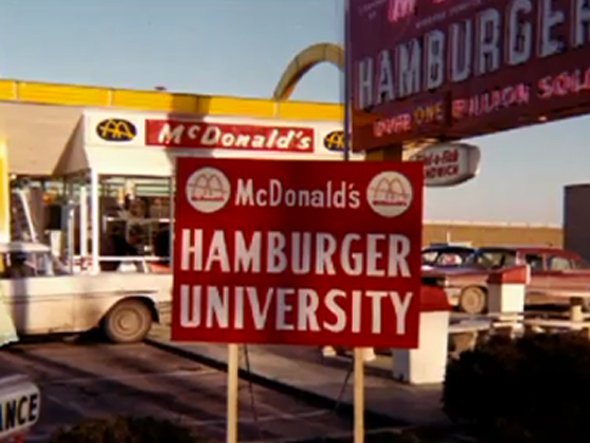A Popular Science article about AT&T’s first answering machine, the Peatrophone, from the early 1950s.
Love Stephen Hawking though I do, I was disappointed when he joined the “Philosophy Is Dead” chorus. I can’t tell you many otherwise intelligent people I’ve heard refer to the discipline as “bullshit,” and that’s hugely perplexing to me. With the challenges we’re facing over the next several decades–answering the technological-driven questions about ethics and the very meaning of humanness, for instance–I can’t think of a more vital time for philosophers. From “Physicists Should Stop Saying Silly Things about Philosophy,” a post by Sean Carroll in which he bats away several complaints about the study of ideas:
“Roughly speaking, physicists tend to have three different kinds of lazy critiques of philosophy: one that is totally dopey, one that is frustratingly annoying, and one that is deeply depressing.
- ‘Philosophy tries to understand the universe by pure thought, without collecting experimental data.’
This is the totally dopey criticism. Yes, most philosophers do not actually go out and collect data (although there are exceptions). But it makes no sense to jump right from there to the accusation that philosophy completely ignores the empirical information we have collected about the world. When science (or common-sense observation) reveals something interesting and important about the world, philosophers obviously take it into account. (Aside: of course there are bad philosophers, who do all sorts of stupid things, just as there are bad practitioners of every field. Let’s concentrate on the good ones, of whom there are plenty.)
Philosophers do, indeed, tend to think a lot. This is not a bad thing. All of scientific practice involves some degree of ‘pure thought.’ Philosophers are, by their nature, more interested in foundational questions where the latest wrinkle in the data is of less importance than it would be to a model-building phenomenologist. But at its best, the practice of philosophy of physics is continuous with the practice of physics itself. Many of the best philosophers of physics were trained as physicists, and eventually realized that the problems they cared most about weren’t valued in physics departments, so they switched to philosophy. But those problems — the basic nature of the ultimate architecture of reality at its deepest levels — are just physics problems, really. And some amount of rigorous thought is necessary to make any progress on them. Shutting up and calculating isn’t good enough.”
Tags: Sean Carroll, Stephen Hawking
Print newspapers are dead and dying in the U.S., with the exception of ethnic newspapers. They still flourish. Of course, that seems to be a truth with a limited future: The next American immigrants will have grown up on cheap smartphones and won’t want the inky product of their predecessors. But for now, it’s an unlikely booming industry. From Devjyot Ghoshal at the Atlantic:
“There is no ‘digital first’ strategy at 169-20 Hillside Avenue, a nondescript shop offering photo services, money transfers and video rentals in Jamaica, Queens. From its basement, Khalil ur Rehman, a first generation Pakistani immigrant, has been publishing the Urdu Times for over two decades.
In his office are two computers, a fax machine, and a phone. ‘Before, we used to actually have a printing press here,’ said Rehman, amid the distant rumble of the F-train that passes under every few minutes. Less frequently, water discharged from a toilet above noisily whooshes down a pipe next to the publisher’s desk.
It’s a barebones operation, but Rehman’s weekly newspaper has 14 editions today, with a total of nearly 100,000 copies printed every week. These include nine cities across the United States, and standalone editions in Canada and the United Kingdom. ‘Now, I’m trying to see if I can start an edition in the Middle-East,’ he said in early March. ‘I’m travelling there next week.’
At a time when the death of print media is regularly predicted, Rehman’s Urdu Times is going strong. And it isn’t alone.”
Tags: Devjyot Ghoshal, Khalil ur Rehman
Most of us cling to life, and some more than others.
Cryonics isn’t just a dubious “defeat” of death, it’s also a fraught process that demands life-extension specialists act quickly and precisely. From a Financial Times “First Person” account by cryonics ambulance driver Tim Gibson, as told to Hattie Garlick:
“Within 10 minutes of a patient stopping breathing, we aim to administer oxygen and chest compressions and place the body in a portable ice bath for cooling. Then there are drugs to stabilise biological systems before the body is removed in our ambulance to a mortuary. There, the blood is flushed from the body and replaced with an antifreeze solution. Within 24 hours of death, the body must have been cooled to at least -20C.
It’s a race against time, so for cryonicists there is a certain irony in the fact that it might be seen as a bonus to be told you’re terminally ill – at least it’s not a road accident; this way there will be time to prepare. As soon as we’re alerted, we start calling the patient’s doctor, coroner, mortuary shipping service, embalmer, airline, US embassy and Homeland Security to smooth the way. These days, no one blinks an eyelid. Not long ago, they saw us as cranks.
Once, though, I dealt with a patient who had been so concerned about what the neighbours might think that they hadn’t told anyone about their plans to be cryonically preserved. The hospital, GP and relatives were all in the dark. You can’t expect to drop that kind of thing on your family and for them not to be upset.”
Tags: Hattie Garlick, Tim Gibson
It looks like the U.S.A. has finally fully embraced the world’s game during this year’s World Cup, and that’s largely due to globalization and ESPN’s investment in the sport. There’ve previously been great individual soccer moments in our country’s history, from Joe Gaetjens’s goal against England in the 1950 World Cup to our women’s team triumphing in 1999, but the only earlier period where football (the one where players primarily use their feet) seemed to have permanently earned a place in the American psyche was when the New York Cosmos dominated the North American Soccer League during the 1970s and 1980s. It turned out to be a false start, but for a brief, shining moment, giant stadiums, including Giants Stadium, were teeming with crazed soccer crowds. Even though the league soon lost its lustre, it did get children to start playing the sport en masse, an important step in our development.
The opening of a 1977 People article by Ira Berkow about Shep Messing, the Cosmos’ deft and sometimes daft goalie during the NASL’s heyday:
“In 1973 the struggling North American Soccer League needed some exposure. New York Cosmos rookie goalie Shep Messing took his obligation literally—he posed nude for Viva magazine’s centerfold. ‘It was publicity; I made some money, but it was a goof,’ Shep admits. ‘It’s something I wouldn’t do now.’
He doesn’t need to. Soccer is booming. Messing and his Cosmos teammates, who used to play ‘the immigrants’ sport’ in front of 600 loyal fans, are now packing 60,000 into the new Meadowlands Stadium in New Jersey. Playing alongside renowned foreigners like Pelé, Franz Beckenbauer and Giorgio Chinaglia, the flamboyant Messing, a Harvard graduate from Long Island, has helped keep the Cosmos at the top of the 18-team league. His 60-yd. kicks and ferocious attacks on every round object that approaches the goal have made Shep one of soccer’s most valuable players.
Yet his biggest contribution to the sport may be as its reigning sex symbol and all-round eccentric. ‘You have to be a little nutty to want to be a goalie,’ Messing says. ‘Who else would want to face a free kick at 90 mph?’ In one confrontation during a penalty kick, Messing suddenly stripped off his jersey, waved it wildly and screamed. His rattled opponent then booted the ball two feet over the goal. As if to prove his theory that ‘goalies are always doing something weird to hang on to their sanity,’ Messing has showed up for games dressed in funereal black. Last year he wore skintight shorts; this season he is favoring baggy outfits.
But Shep insists that at 27 and after ‘brutal’ battles around the goal—which have resulted in surgery on his thigh, knee, elbow and shoulder—he is toning down his act. ‘At first I thought the reputation would be marketable, promotable,’ he says. ‘In retrospect, that wasn’t accurate. But I’m finding it’s harder to change an image than to build one.'”
Tags: Franz Beckenbauer, Giorgio Chinaglia, Ira Berkow, Joe Gaetjens, Pelé, Shep Messing
Free Adult S/M Diapers AND BEDLINERS (Gramercy)
8 Packages of 50 Bedliners
5 Packages of Adult S/M Diapers (NO PULLUPS)
10 Packages of ADULT pantiliners
This would be great if a charity wanted to come pick up. There is a substantial number. Also, this sounds strange, but adult diapers and bedliners make the BEST PACKING MATERIALS ever for moving. Trust me. I just moved. Just think–you can wrap your plates and dishes in seriously large diapers–and then you can close it with the tab. Happy packing!
From the November 23, 1910 Brooklyn Daily Eagle:
“Chicago–After dictating into a phonograph a last message to his children, John Kryl, a sculptor, 71 years old, died yesterday.
Seeing that the end was near and fearing that he would not be able to see and speak to his five children, Kryl asked that a phonograph be brought. This was done and the father spoke in the language of his home land, Bohemia, his final words, telling his children that after a long life he was ready to die.
He bade them all farewell, and within six hours he was dead.”
Tags: John Kryl
Speaking of Leon Theremin’s namesake musical instrument, here’s a 1962 demonstration of one on I’ve Got A Secret. The mysterious machine still needed explaining more than three decades after its invention. Musician Paul Lipman does the honors.
Tags: Leon Theremin
From Mike Ramsey’s WSJ article about Ford reconsidering its status as an automaker in a world being remade by ridesharing and robocars:
“Over the past several years, Ford’s attention has turned to mobility – or rather, preventing immobility. During a speech on June 24, [incoming CEO Mark] Fields talked about Ford becoming a ‘mobility company.’ He has argued that auto makers should be part of discussions about how to ease gridlock and congestion in the world’s growing cities.
Some rival auto makers are expressing similar concerns in similar language. ‘New technologies are changing how we think about automobiles and transportation,’ Osamu Nagata, president of Toyota Motor’s North American engineering and manufacturing operations said in a statement Friday.
The threat urban congestion poses to the auto industry is becoming clearer as big cities in China, the world’s largest vehicle market, have begun limiting new car registrations.”
Tags: Henry Ford, Mark Fields, Mike Ramsey, Osamu Nagata
While Cliodynamics uses quantified information of the past to chart the future, most alternative histories seem to be based on supposition rather than statistics. In a Financial Times piece highlighting the best books of the summer, conservative British politician Kwasi Kwarteng suggests what sounds like a very good volume which focuses on counterfactuals:
“I have enjoyed many books this year but one that stood out, partly because of its unusual nature, was Altered Pasts: Counterfactuals in History (Little, Brown) by Richard J Evans. Counterfactuals are the kind of guessing game we play when we wonder what would have happened if, say, Napoleon had won the battle of Waterloo. Evans’s book reveals how much of our modern thinking about history is dominated by counterfactuals. For example, in the last 20 years, many novels have featured lurid depictions of a Britain conquered by the Nazis. Altered Pasts is a good read, which stimulates further reflection about the nature of history.”
Tags: Kwasi Kwarteng
Trusting Facebook or Google or any large data-mining tech corporation with our information, let alone our emotions, is a mistake. And is many cases, it’s not a matter of a poor choice by us–there’s no choice at all. We’re inside that matrix now. The opening of Robert Booth’s Guardian report on Mark Zuckerberg’s behemoth executing large-scale psychological experiments on unsuspecting users:
“It already knows whether you are single or dating, the first school you went to and whether you like or loathe Justin Bieber. But now Facebook, the world’s biggest social networking site, is facing a storm of protest after it revealed it had discovered how to make users feel happier or sadder with a few computer key strokes.
It has published details of a vast experiment in which it manipulated information posted on 689,000 users’ home pages and found it could make people feel more positive or negative through a process of ’emotional contagion.’
In a study with academics from Cornell and the University of California, Facebook filtered users’ news feeds – the flow of comments, videos, pictures and web links posted by other people in their social network. One test reduced users’ exposure to their friends’ ‘positive emotional content,’ resulting in fewer positive posts of their own. Another test reduced exposure to ‘negative emotional content’ and the opposite happened.
The study concluded: ‘Emotions expressed by friends, via online social networks, influence our own moods, constituting, to our knowledge, the first experimental evidence for massive-scale emotional contagion via social networks.’
Lawyers, internet activists and politicians said this weekend that the mass experiment in emotional manipulation was ‘scandalous,’ ‘spooky’ and ‘disturbing.'”
Tags: Mark Zuckerberg, Robert Booth
The poor and middle class in America are not only under siege by the automation of industries but by our inability to execute policies that intelligently remedy disparity, that keep the gulf from growing so wide. In the final installment of “The Great Divide” series at the New York Times, Joseph Stiglitz looks at how we traveled from World War II to 99 and 1. An excerpt:
“Our current brand of capitalism is an ersatz capitalism. For proof of this go back to our response to the Great Recession, where we socialized losses, even as we privatized gains. Perfect competition should drive profits to zero, at least theoretically, but we have monopolies and oligopolies making persistently high profits. C.E.O.s enjoy incomes that are on average 295 times that of the typical worker, a much higher ratio than in the past, without any evidence of a proportionate increase in productivity.
If it is not the inexorable laws of economics that have led to America’s great divide, what is it? The straightforward answer: our policies and our politics. People get tired of hearing about Scandinavian success stories, but the fact of the matter is that Sweden, Finland and Norway have all succeeded in having about as much or faster growth in per capita incomes than the United States and with far greater equality.
So why has America chosen these inequality-enhancing policies? Part of the answer is that as World War II faded into memory, so too did the solidarity it had engendered. As America triumphed in the Cold War, there didn’t seem to be a viable competitor to our economic model. Without this international competition, we no longer had to show that our system could deliver for most of our citizens.
Ideology and interests combined nefariously. Some drew the wrong lesson from the collapse of the Soviet system. The pendulum swung from much too much government there to much too little here.”
Tags: Joseph Stiglitz
Robots seem to have been capable of offering rudimentary salutations to Madison Square Garden conventioneers more than eight decades ago, but a Broadway speech and Q&A in the Roaring Twenties by a robot named Eric may not have been entirely legit. The bucket of bolts could certainly gesture and nod, but his “voice” may have come from an offstage confederate via remote wireless, though no such possibility was entertained in a report about the unusual stage debut in the January 20, 1929 Brooklyn Daily Eagle. The story:
“Eric Robot, ‘the perfect man,’ made his first public appearance in America on the stage of the John Golden Theater, 58th St. and Broadway, yesterday afternoon.
Eric arrived from England with Capt. William Henry Richards, secretary of the Model Engineering Association of England, 14 days ago, and plans a tour of the continent. Eric is the mechanical man invented by Captain Richards after many years of private experimental work, and was exhibited before the public for the first time 17 weeks ago in London.
Eric is made of aluminum, copper, steel, miles of wire, dynamos and electro-magnets. His eyes are two white electric bulbs, and his teeth, or rather tooth, is a blue bulb which, on the command, ‘Smile, Eric,’ appears, accompanied by a sputtering sound. The upper half of Mr. Robot’s body, Captain Richards explained, is devoted to the speaking mechanism, and the rest to the movable parts. Eric made a five-minute speech yesterday, talking in an ordinary male voice. Eric was bombarded with questions by the audience, and having been posted with answers to hundreds of probable questions, made a fairly good showing.”
People who glorify McJobs as dignified, honest work are almost always those who don’t have to do them. In a Financial Times essay, Douglas Coupland, who sees our technology-driven tomorrow as tragicomedy, revisits the neologism for dead-end, soul-killing, low-wage work that he popularized in his 1991 novel Generation X, back when most people thought such stalled careers were a phase the young people were going through and not our future, all of us. An excerpt:
“Back in the early 1990s I began to see the start of a process that’s currently in full swing: the defunding and/or elimination of the mechanisms by which we once created and maintained a healthy middle class. What was once a stage of life is now turning into, well, all of life.
In the early 1990s I wanted to set a book in a fast-food restaurant and in order to make field notes, I tried hard to get a job in various Vancouver-area McDonald’s restaurants but, as a reasonably well-nourished male in his mid-thirties with no references on his application, I raised too many alarm bells and I never got a job, and good on fast food for having HR mechanisms that can filter out infiltrators like me. A decade later I ended up setting a blackly comic novel in a Staples (The Gum Thief), which is basically fast food but with reams of A4 instead of pink goo-burgers. The point was to foreground the fact that a minimum wage job is not a way to live life fully, and to be earning one past a certain age casts a spell of doom upon its earners, sort of like those middle-class Argentines who lost their jobs in the crash 15 years ago and never went back to being middle class again.
McDonald’s campaigned for years and ultimately failed to have the definition of the word McJob revised in the Oxford English Dictionary, in 2006 even renting a big screen in Piccadilly Circus to put forth its viewpoint. The saga of this process is a fun read on Wikipedia but, given the accelerating shrinkage of the middle class, it all seems like a frivolous corporate bonbon from a nearly vanished era. Discussions of a minimum wage in 2014 seem to have a nasty bite. As I’ve said before, we’re all going to be working at McDonald’s into our eighties (not all, of course, on the minimum wage) but the relentless parade of numbers that are making this clear to us is starting to frighten people to the core. It’s really happening.”
Tags: Douglas Coupland
- Classic Disney Characters Who Might Have Been Gay
- LOOK: Student Gets Trapped In Vagina Sculpture
- The Proper Etiquette For Eating Corn On The Cob, As Shown By A Dog
- Serious ‘Saved By The Bell’ Secrets To Be Exposed
- 11 Ways To Divorce-Proof Your Marriage
- 11 Things You Didn’t Know About ‘The Fresh Prince Of Bel-Air’
- Adam Levine Knows You Think He’s A Douchebag
- Man Printed His Resume On Beer (And Got The Job)
- Bad News For ‘Love Boat’ Star
- Guess Who This Little Cutie Grew Up To Be
10 search-engine keyphrases bringing traffic to Afflictor this week:
- charlie rose humor
- ghost brands being brought back to life
- eldridge cleaver william buckley
- jimmy breslin kennedy gravedigger column
- airport-based city in south korea
- german inventor joseph faber’s talking machine
- liberace and muhammad ali together
- david grann writing about explorer percy fawcett
- an argument in favor of genetically modifying people
- jimmy kimmel interviewing elon musk
- Old Print Articles: Nikola Tesla dies alone in Manhattan (1943) + Leon Theremin wows New York City audience with namesake invention (1928) + Aggrieved man lives in wife’s tomb for seven years (1905).
- Featured Videos: Rona Barrett frightens horror directors John Carpenter, George Romero and Jeannot Szwarc (1981) + Dudley Moore, Peter Cook, Jonathan Miller and Allen Bennett visit What’s My Line? (1962) + Carson McCullers interviewed on a ship (1956) + A look at the dark eroticism of Helmut Newton (1989).
- Recently Posted on NYC’s Craigslist: Everything about this is illegal + My ancestors were freaks + Paula has always seemed sort of cool to me, despite what they say about her.
- Some seem to think brutal murderer Michael Alig is a fun celebrity.
- Extremist Senator Ted Cruz has been emboldened, not chastened.
- Samuel Beckett and Andre the Giant were friends. This changes everything.
- Journalist Scott Carney did an AMA about human-organ trafficking.
- Steven Rattner thinks robots will not wreck the job market. Perhaps.
- Robots probably aren’t as scary as the people who own them.
- Gawker has way more unique visitors than the New York Times.
- Nicholas Kristof seems a great guy, but is he a great journalist?
- Bill James favors a simple fix for exorbitant executive pay.
- The second machine age may mean greater wealth in fewer hands.
- Jack White was the last rock star of the Industrial Age.
- Ralph Nader doesn’t believe our culture is very participatory.
- The Great Melt can be slowed but not avoided.
- “Meth Face” might really exist or it might be clever propaganda.
- Melinda Gates discusses having wealth and spreading wealth.
- Larry Page thinks privacy concerns may have a chilling effect on creativity.
- Public and private space exploration both have their benefits.
- Philosopher John Searle tries not to think about animal rights.
- Kits will be sold that will give driverless capacity to pre-autonomous vehicles.
- Amazon may end up on the receiving end of an antitrust investigation.
- 3D printers are amazing, but people will use them to make guns.
- Small children can often regenerate severed fingertips.
- A NASA rocket was destroyed because of a simple typo.
- A network of hover cars probably won’t be the future of commuting.
- Technologists are trying (again) to turn the UK into a hub for robotics.
- Robots might be the jockeys of the future.
- For the time being, smarter homes just complicate simple things.
- A brief note from 1910 about a true believer.
- A brief note from 1910 about a long walk.
- A brief note from 1910 about sleepy people.
- A brief note from 1911 about new eyelids.
- This week’s Afflictor keyphrase searches.
If you want to know interesting things that you may not have learned yet, Delanceyplace is a good place to go. From a story by Michaeleen Doucleff about children regenerating fingertips:
“‘When I was three years old I caught my thumb in a folding chair. I cannot remember this episode, filled as it must have been with blood and pain, but my mother does. She packed the amputated tip of the thumb on ice and rushed me to the Emergency Department, where a surgeon sewed it back on again. I still have the scar on my thumb now, running parallel to the base of my nail.
‘What my mother didn’t know, and what most doctors still don’t, is that my thumb would almost certainly have grown back perfectly without any treatment. It would have regenerated in the same way as some amphibians can grow back their tails or legs. Bone, nail, nerves, blood vessels, the whole lot. All it needed was a gentle clean, a non-adherent dressing, and a lollipop to soothe my frayed, three-year-old nerves.
‘It turns out humans can regenerate, but only the very tips of their fingers and only [some] children. In the 1970s a Sheffield paediatrician even published a paper on this effect in the Journal of Paediatric Surgery. Her results were unequivocal: amputations above the last joint in children under six left to heal naturally would regrow, the entire finger, without a scar or deformity!'”
________________________
Not regeneration but transplantation, 2011:
Tags: Michaeleen Doucleff
From the March 21, 1910 Brooklyn Daily Eagle:
“Massillon, Oh.–Because ill health prevented her from attending Palm Sunday services, Mrs. Jeremiah Yando, 65 years old, drowned herself in a cistern in the rear of her home.”
Tags: Mrs. Jeremiah Yando
 Dudley Moore, Peter Cook, Jonathan Miller and Allen Bennett, the lineup of Beyond the Fringe, which essentially kick-started modern comedy and influenced Lorne Michaels a great deal, appear on a 1962 episode of What’s My Line?, after they moved the show from London to Broadway.
Dudley Moore, Peter Cook, Jonathan Miller and Allen Bennett, the lineup of Beyond the Fringe, which essentially kick-started modern comedy and influenced Lorne Michaels a great deal, appear on a 1962 episode of What’s My Line?, after they moved the show from London to Broadway.
Tags: Allen Bennett, Dudley Moore, Jonathan Miller, Peter Cook
If you were living in extreme poverty, in a place rotten with disease, who would you rather see, someone with a laissez–faire attitude who was proud of himself for not causing any unintended consequences as he stood on the sidelines, or someone like Jeffrey Sachs or Bill and Melinda Gates, who, sure, can’t make the world perfect, but who might give you some of the tools you need to survive, maybe even thrive a little? It’s awfully easy to dismiss philanthropists for their failings as they learn the best ways to succeed, but if I were in great need I would always gravitate to people who might give me something real even if it wasn’t ideal. From Samiha Shafy and Mathieu von Rohr’s Spiegel interview with Melinda Gates:
“Spiegel:
In your speech at the WHO, you said that you and your husband despise inequity. But isn’t it strange when you return from your trips to your luxurious mansion on Lake Washington outside of Seattle? A property for which you have to pay more than a million dollars a year in taxes.
Melinda Gates:
I think it is the same for you if you go to the developing world and then come home and get into your car with seat heaters. Or you come home, turn on your shower and you have hot water. I don’t care whether you live in a small apartment or in a giant house, there are inequities. Quite frankly, neither Bill nor I would build that house again if we had it to do all over again. But it’s a matter of what are you doing to battle those inequities and for Bill and me, we have now oriented our life around that. We’re spending not only our money, but also our time.
Spiegel:
Are you doing so partly out of a sense of guilt?
Melinda Gates:
No, I wouldn’t say guilt. We feel like we have a responsibility. Any of us that is lucky enough to grow up in a country like Germany or Great Britain or Japan or the US ought to do something for the rest of the world.
Spiegel:
The French economist Thomas Piketty recently triggered a debate with his book in which he argues that iniquities are also growing in the industrialized world. His recipe is that of raising taxes for the very rich. Do you agree with him?
Melinda Gates:
Bill and I are both in favor of an estate tax and we’ve actually been quite outspoken about that. But it hasn’t gotten very far in the US. If you’re in the upper quartile of income in any of these wealthy economies, you ought to give back more than other people. Bill, Warren Buffett and I are quite involved in trying to get people of substantial wealth to commit to giving half back, either in their lifetime or at their death.”
Tags: Bill Gates, Jeffrey Sachs, Mathieu von Rohr, Melinda Gates, Samiha Shafy
Neuroscientist Carl Hart shares contrarian views about drugs in his new book, High Price. In addition to refusing the idea that methamphetamines destroy a person’s looks–that widely held belief is just the result of a very successful anti-drug propaganda campaign, he argues–Hart doesn’t think crack is nearly as addictive as it’s made out to be. From an interview by Amy Chozick in the New York Times Magazine:
“Question:
You begin your book High Price with a story about an experiment you did. You offered a crack addict a hit or $5.
Carl Hart:
He chose the cash. Why did you lead with this? We have rigorous science to support that crack cocaine is not as addictive as people think and that they have been hoodwinked. I was hoping people would want to read further if they had a myth busted right up front.
Question:
How do you think Hollywood plays into our perceptions about drugs and addiction? It’s not only Hollywood.
Carl Hart:
One of Public Enemy’s bigger songs, ‘Night of the Living Baseheads,’ is all about this crack addict who’s just fiending. Public Enemy did so many good things, but on that song, they were wrong. And New Jack City is on TV, like, every week. Remember New Jack City?
Question:
Yes, the movie about a drug kingpin who turns an apartment complex into a crack factory.
Carl Hart:
Again, the filmmakers were trying to help their community, but the problem was that crack wasn’t the real problem. The real problem was unemployment, lack of education, lack of skills. Politicians are happy not to have to focus on those larger issues. You can just focus on crack cocaine, put more cops on the street and make tougher laws.”
Tags: Amy Chozick, Carl Hart
In a New York Review Books piece, Bill McKibben lays out the sobering ramifications of the Great Melt, which can be slowed down and perhaps managed to some extent with technological innovation and political will, but which cannot be stopped. An excerpt:
“In mid-May of this year, a pair of papers were published in Science and Geophysical Research Letters that made clear that the great glaciers facing the Amundsen Sea were no longer effectively ‘buttressed.’ It turns out that the geology of the region is bowl-shaped: beneath the glaciers the ground slopes downward, meaning that water can and is flooding underneath them. It is eating away at them from below and freeing them from the points where they were pinned to the ground. This water is warmer, because our oceans are steadily warming. This slow-motion collapse, which will occur over many decades, is ‘unstoppable’ at this point, scientists say; it has ‘passed the point of no return.’
This means that as much as ten feet of sea-level rise is being added to previous predictions. We don’t know how quickly it will come, just that it will. And that won’t be all. A few days after the Antarctic announcement, other scientists found that much of Greenland’s ice sheet shows a similar underlying geology, with warm water able to melt it from underneath. Another study that week showed that soot from huge forest fires, which are more frequent as a result of global warming, is helping to melt the Greenland ice sheet, a remarkably vicious cycle.
In certain ways none of this really comes as news. A leading glaciologist, Jason Box of the Geological Survey of Denmark and Greenland (GEUS), has calculated that given the paleoclimatic record, our current atmospheric levels of greenhouse gases are probably enough to produce an eventual sixty-nine feet of sea-level rise.2 But it’s one thing to know that the gun is cocked, and another to see the bullet actually traveling; the news from the Antarctic is a turning point. It doesn’t mean we should give up efforts to slow climate change: if anything, as scientists immediately pointed out, it means we should ramp them up enormously, because we can still affect the rate at which this change happens, and hence the level of chaos it produces. Coping over centuries will be easier than coping over decades.”
Tags: Bill McKibben

“Fun in the Produce Aisle.”
A Collection of 37 Different Erotic Lesbian Stories!
1. Paula is a Little Bitch
2. Under Cover Lesbian Gets Caught
3. My Girlfriend is Our Little Secret
4. My Wife Takes on a Dominatrix
5. When A Woman Blackmails Another Woman
6. A Ride To The Park
7. When a Wife Has Different Intentions
8. Carmen’s Dilemma
9. Maid to Order
10. Lori Experiments with Her Neighbor
11. A Bit of Filipina Blackmail
12. Under Cover
13. Mommy’s Little Secret
14. My Wife’s Fantasy
15. A Ride To The Park
16. Jacob’s Discovery
17. Carmen’s Dilemma
18. Lesbians in the Laundry Room
19. Lesbians in the Restaurant
20. Lesbians in the Library
21. Lesbians Trying on Clothes
22. Fun in the Produce Aisle
23. Two Lesbians on an Elevator
24. When the Maid Found Her Tied
25. She Uses Her Best Friend’s Mother
26. She Enjoys an Older Woman in the Swing
27. She is Left Naked in the Park
28. They Are Rented a Special Room at Check-In
29. She Installs a New Swing
30. She is Blackmailed into Being an Escort
31. Panty Smothering Payback
32. When 2 Strippers Knock on Your Door
33. She is Left Tied in the Dressing Room
34. She Tries Her First Couple
35. Tied to the Picnic Table and Left
36. On Display on the Front of the Boat
37. They Make Her Walk Naked Down the Street
Parting is such sweet sorrow, especially when we’re talking about the dearly departed, but one businessman in 1905 was too sad to let go when his wife died. He decided to keep her “alive” in her elaborate tomb and to keep her company. From an article in that year’s March 23 edition of the Brooklyn Daily Eagle:
“Jonathan Reed, who has lived almost continuously for seven years in the tomb of his wife at Evergreen Cemetery, was found shortly after 4 o’clock today, lying on the stone floor of the tomb apparently in a dying condition. The laborer who discovered the old man did not know who he was and before he had been identified he was taken in an ambulance to the Kings County Hospital. It was reported at 8 o’clock that Mr. Reed was still alive, but in a very critical condition.
The workman who found Mr. Reed happened to pass the doorway of the tomb shortly after 1 o’clock. He noticed that the iron door stood partly open, and thinking that something was wrong entered the tomb. When he saw the old man on the floor he thought that he was dead and hastened to inform Policeman Dooley, the special patrolman assigned to the cemetery, of the fact. Dooley, without waiting to investigate, summoned Dr. Meister from the Bradford Street Hospital to attend the man. Dr. Meister reached the tomb at 1:30 o’clock. He saw at once that the man was not dead, but had suffered a severe stroke of apoplexy. The physician sent a call to the Kings County Hospital for an ambulance, which carried Mr. Reed to the hospital, before any of those who had attended him knew who he was.
When the marble workers and the other business men near the cemetery heard of the old man’s illness, they made an effort to have him sent to his home, but he had already been placed in the pauper’s ward at the hospital and it was decided to let him remain there.
Jonathan Reed, according to his own statement, is 70 years of age. He was formerly prominent in the Eastern District of Brooklyn as a business man and is believed to be wealthy. When his wife died about eight years ago, Mr. Reed had built for her in Evergreen Cemetery one of the most remarkable tombs ever constructed. It was his belief that there was no such thing as a life after death. When his wife died he told friends that the only change which had come about was that the warmth had left her body. He said that if he could keep her warm she would just as much be his wife as before her death. Acting on this theory, Mr. Reed had the tomb fitted elaborately with a dwelling room and from the time of its completion up to the present he had lived there constantly.
For a period of several hours every day and every night Mr. Reed had been accustomed to sit by the casket of his dead wife and talk to her just as he did when she was alive. He says that she understands everything that he says and that he understands the responses which she makes.
In spite of this remarkable eccentricity in regard to his dead wife, Mr. Reed is in other respects an unusually intelligent and interesting man. He converses on all subjects with a degree of knowledge and insight rare to a person of his age. It is only upon the subject of death that he appears to be at all deranged.”
Tags: Dr. Meister, Jonathan Reed, Policeman Dooley









